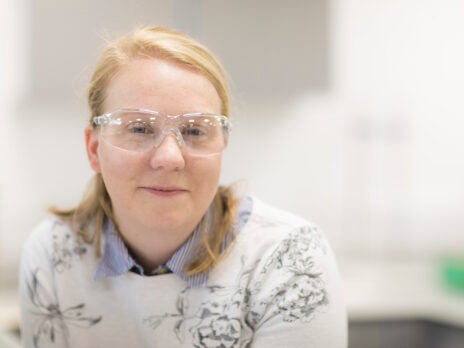Joanne Storey, R&D programme lead at James Cropper, highlights to Packaging Gateway the importance of innovation and explains why packaging manufacturers must not take their foot off the pedal.

It’s hard to pull out positives from the experience of the pandemic. If we look hard enough, though, it would be the impact that COVID has had on the climate consciousness of the world. Reports over the past two years all describe an enthusiastic consumer who is now looking to live better, buy better and be better.
The consumer now expects brands to demonstrate the efforts they are making to shift to greener initiatives and eco-friendly packaging is one of those switches. Sustainable packaging is no longer an option, but rather an essential, and paper plays a significant role here.
Pre-pandemic, across 28 European countries, the level of paper and cardboard packaging recycling was at a record high of 85.8%, so things are moving in the right direction. Indeed, one could be excused for thinking that the paper and packaging industry could take its foot off the accelerator when it comes to introducing more sustainable innovations.
The truth is, however, that the industry must never dial down its efforts. Innovation has the power to continually drive changes in consumer packaging and we all have a role to play in helping brands to be better.
That isn’t to say the packaging industry isn’t already doing a great job – we are. We’re using materials that are lighter in weight to allow for greater shipping efficiency, we’re using new technology to help brands offer packaging made from easily-recyclable materials, and we’re continually looking at new ways to innovate.

US Tariffs are shifting - will you react or anticipate?
Don’t let policy changes catch you off guard. Stay proactive with real-time data and expert analysis.
By GlobalDataThe message is clear: We must never become complacent.
At James Cropper, we’ve seen the demand for circular sustainable solutions become greater. As a response, we are continually looking at the value that waste offers in packaging.
Five years ago we launched the world’s first recycling process dedicated to upcycling takeaway coffee cups. ‘CupCycling’ extracts the plastic lining that previously made cups impossible to be recycled and transforms the remaining paper fibre into premium paper for packaging. There is something quite satisfying for a consumer to buy a greeting card and see the words ‘I used to be a coffee cup’ on it.
Our appetite for taking value from waste streams has since grown and we continue to strive for game-changing innovation. Most recently, in an industry first, we are now using plant waste to create coloured paper; using dye derived from rosemary plant extract, which would have otherwise been wasted. It’s the first-time plant-based dyes have been used in modern papermaking. These dyes are more commonly used in the textile industry, but our latest development demonstrates the opportunities that plant-based dyes can offer in other applications
As an industry, we are responsible for showcasing the realms of possibility in packaging, showing brands how they can have market-leading environmental credentials without compromising on technical performance. The innovative breakthroughs our business has shown in the last few years demonstrate how much can be done.
Whether it’s used coffee cups, plant extracts, food waste or other pre- and post-consumer waste, by repurposing these valuable streams, we continue to support the transition to a more circular economy.
Looking to the future, we are investigating botanical dyes extracted from a wide variety of origins including plants, shells and fungi; the range will expand significantly. The future opportunities are exciting for our industry.




